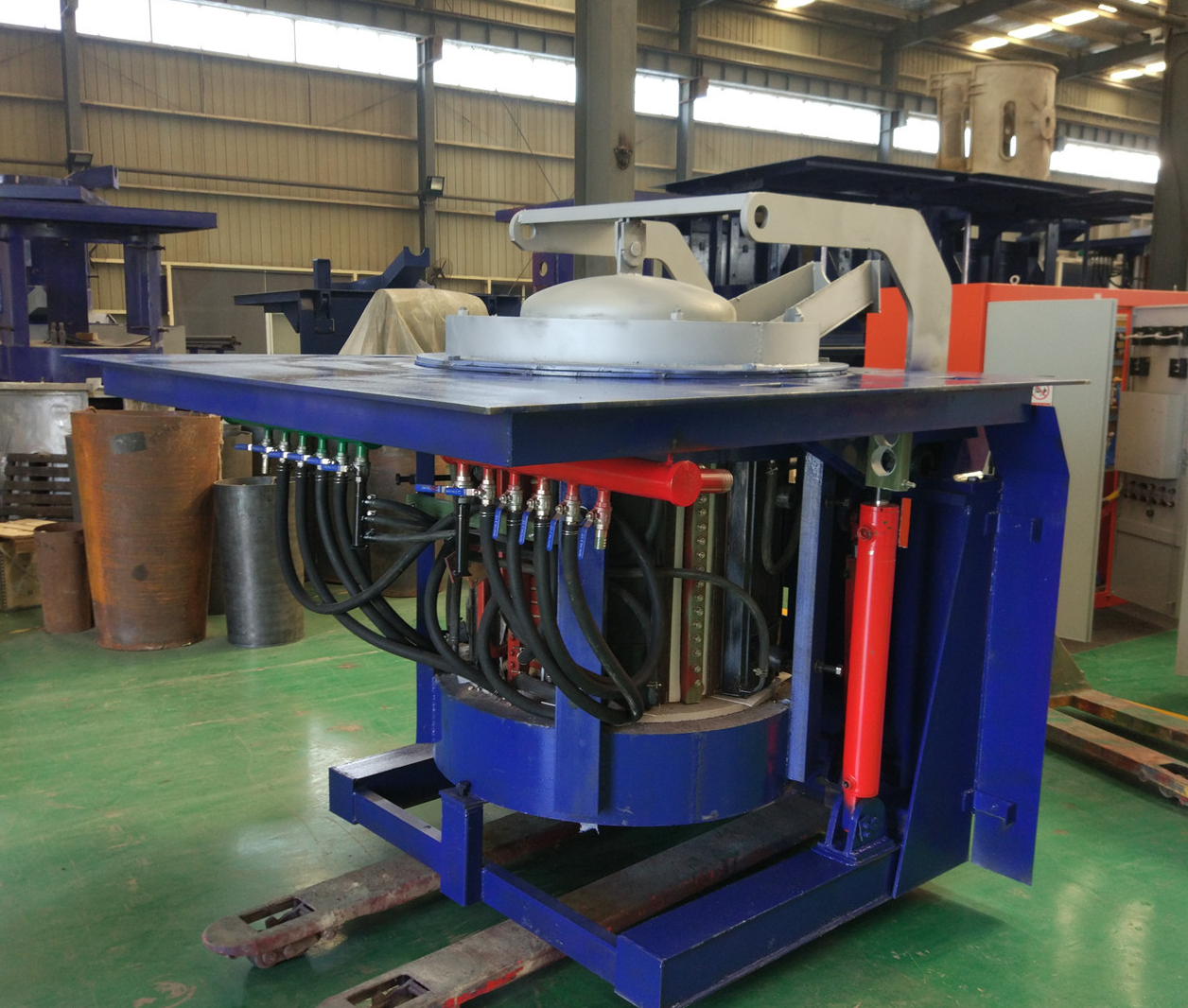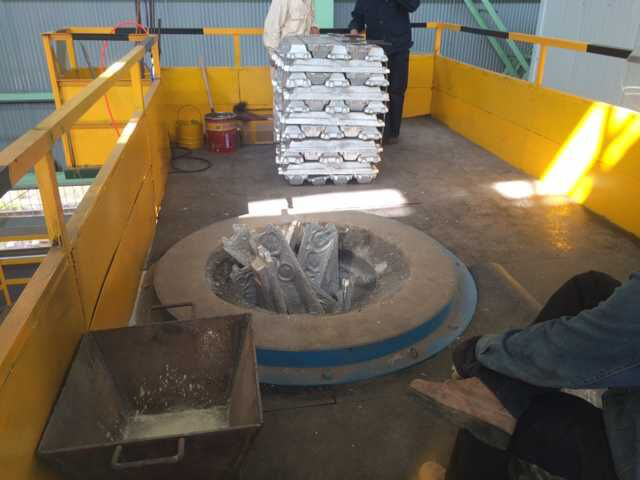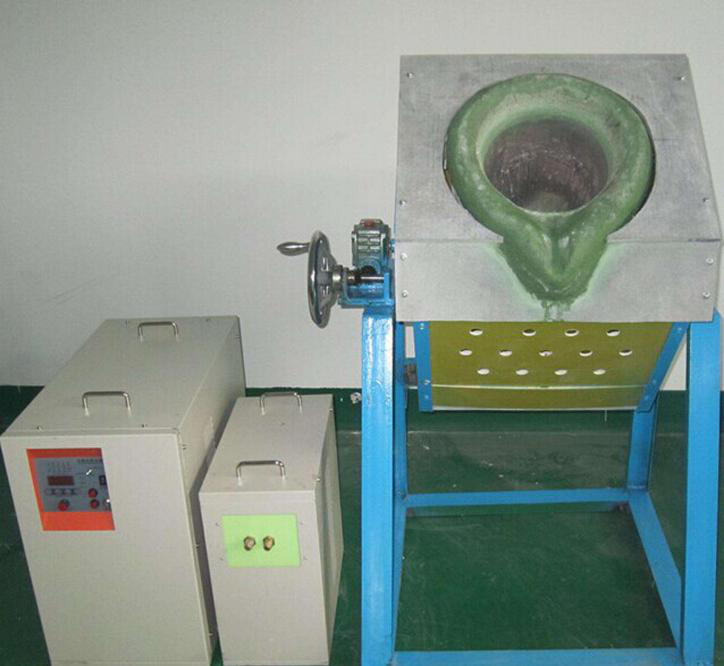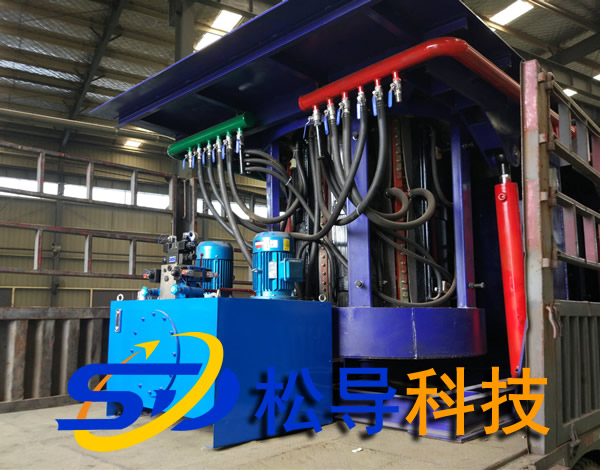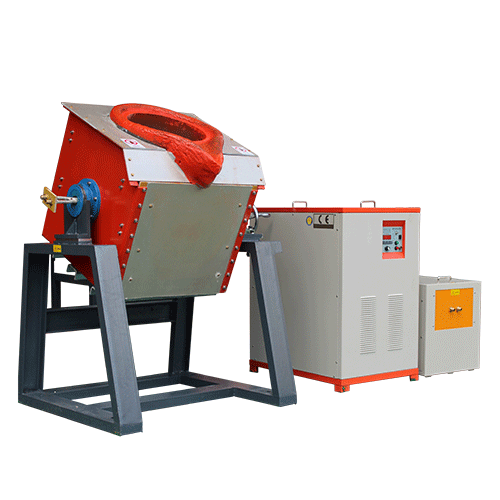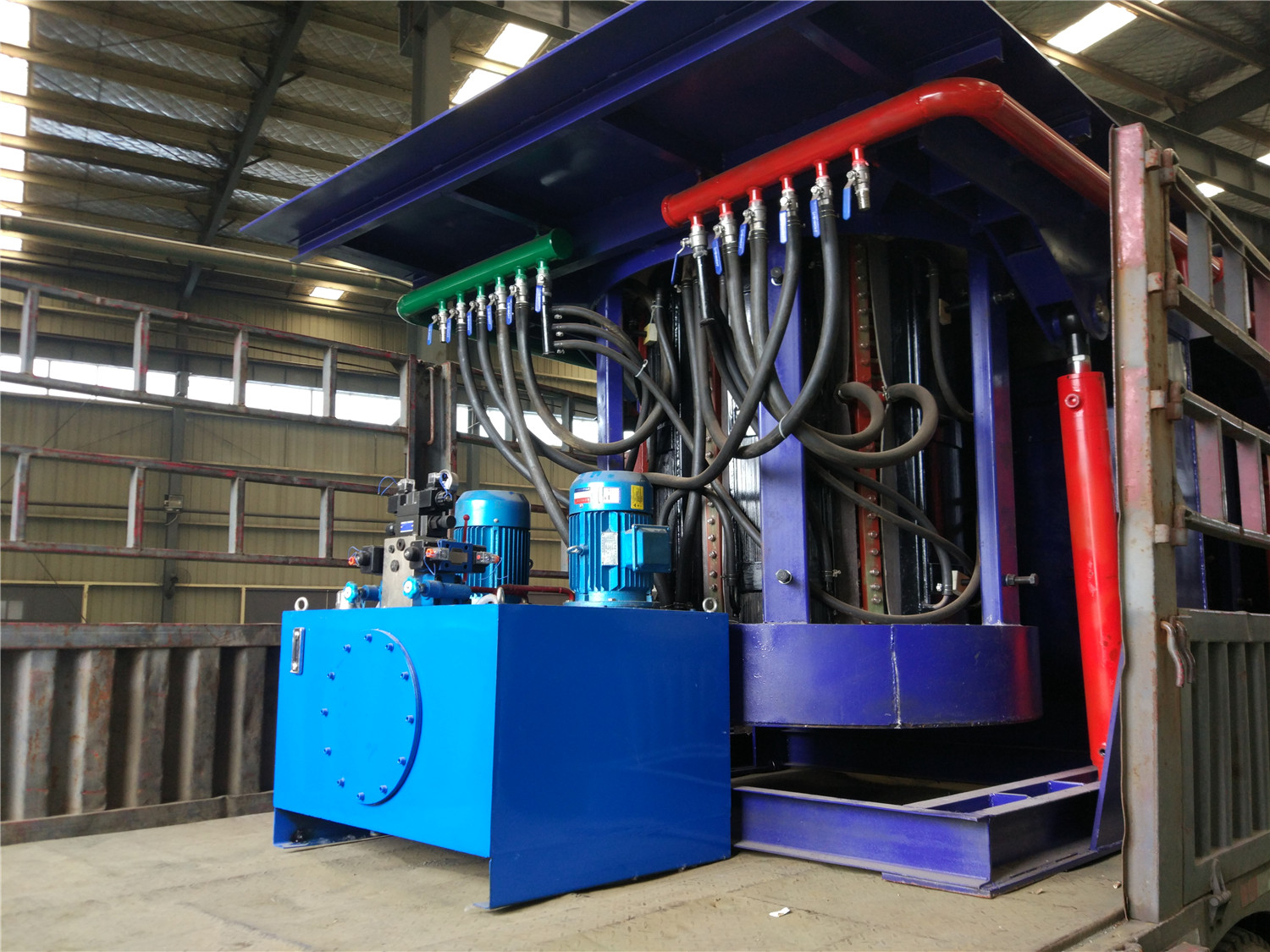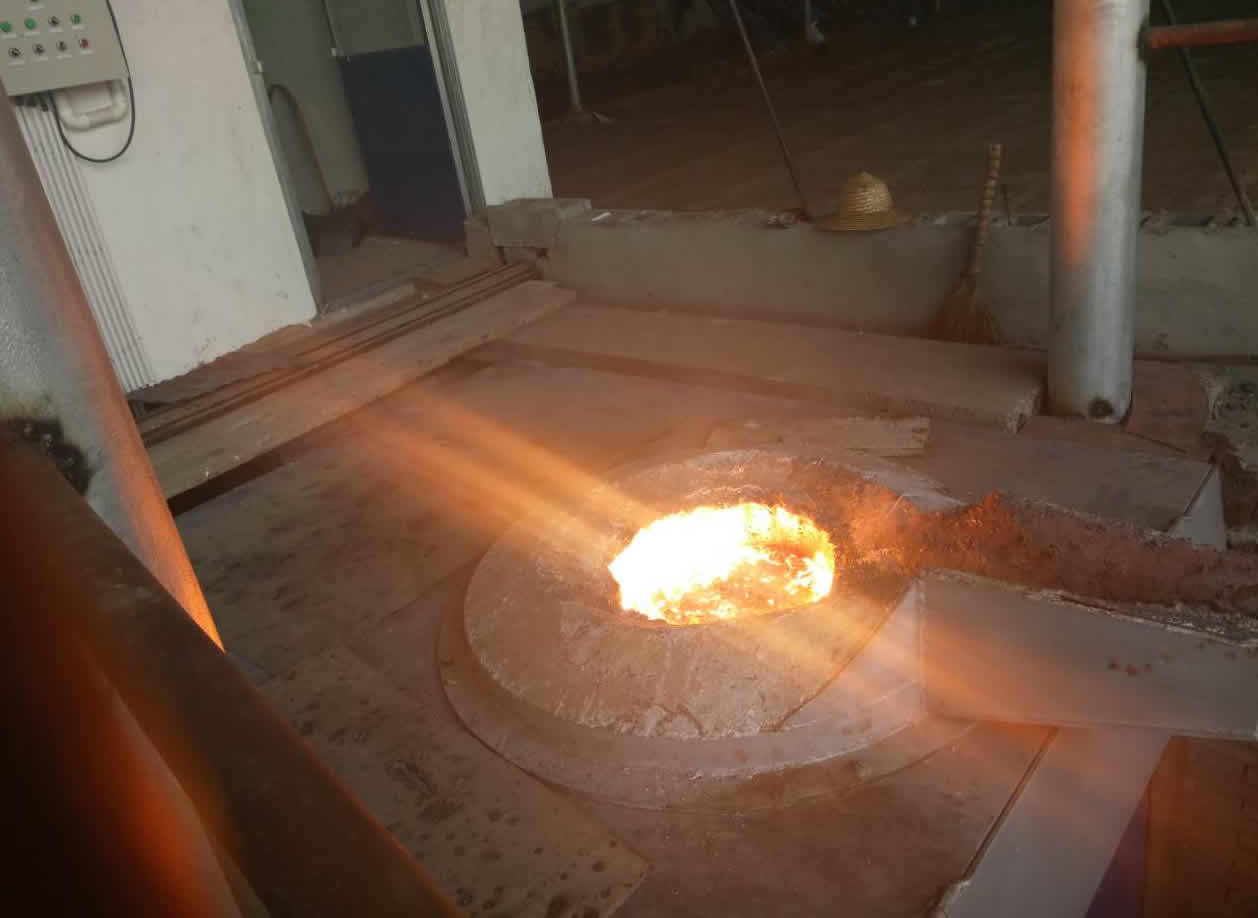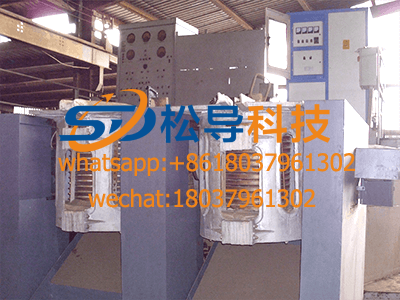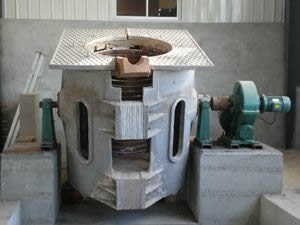Knowledge Base - Composition and Working Principle of Medium Frequency Furnace Dust Removal Equipment
1 medium frequency furnace dust collector composition
The intermediate frequency furnace bag dust collector is composed of a casing, a filter bag, a ash hopper, a ash discharging device, a bracket and a pulse cleaning system. When the dust-containing gas enters the dust collector from the air inlet, first hits the inclined baffle in the middle of the air inlet, the air flow turns into the ash hopper, and the air flow speed becomes slow. Due to the gravity sedimentation, the coarse dust in the gas directly falls. Into the ash bucket, play the role of pre-collection. The airflow entering the ash bucket is then folded upwards. After passing through the filter bag with the metal skeleton inside, the dust is trapped on the outer surface of the filter bag, and the purified gas enters the clean room at the upper part of the filter bag chamber, and is collected and discharged to the outlet pipe. .
2 intermediate frequency furnace dust collector working principle
The intermediate frequency furnace dust collector is economical and practical, simple in structure, easy to install and convenient to maintain. It is mainly used for dust collection of small dust spots. The machine adopts polyester cloth bag. The inlet temperature is about 120 degrees Celsius, and the dust removal effect can reach 99% . If there is special purpose, it can provide dust collector with temperature resistance and corrosion resistant filter bag.
The intermediate frequency furnace flue gas capture system consists of a low-position mobile dust collecting hood, feeding equipment, and tapping equipment and dust removing equipment. The low-position mobile dust collecting cover covers all the operating platform and the steel tapping pit, so that the intermediate frequency furnace smelting production process is carried out in the low-position mobile dust collecting hood, and the effective capture of the whole process of the flue gas is realized. When feeding, the feeding device is used for feeding, and the material is filled up several times according to the production requirement, which solves the problem that the flue gas is difficult to be trapped when the feeding is performed ; when the steel is tapped, the intermediate frequency furnace platform is turned over directly to the steel rail flat car. In the ladle, the tapping process is completed in the hood, which overcomes the partial leakage of the flue gas when the local dust collecting hood is tapped.
3 operating characteristics of intermediate frequency furnace dust collector
The air inlet of the medium frequency furnace dust removal device is set on the ash hopper. After the airflow enters the ash hopper, it first hits the baffle at the end of the air inlet pipe. The function is the same as the above principle, and the shell plate is divided into several independent dust collection chambers by partitions. Each of the dust collection chambers is cleaned in a given time interval, each of which is equipped with a poppet valve, the poppet valve is closed when the dust is removed, and the filtered air flow passing through the dust collection chamber is cut off, and then the electromagnetic pulse valve is opened. An anhydrous, oil-free, high-pressure clean air is sprayed into the filter bag to remove dust from the outer surface of the filter bag. The pulse blowing width and the cleaning cycle of each dust collecting chamber are automatically and continuously performed by a dedicated cleaning level controller.
Dust removal process in 4 intermediate frequency furnace smelting process
The heavy metal components in the soot during the smelting process of the intermediate frequency furnace are related to the composition of the steel and the steel operation process. Since the surface of the scrap steel is often painted or galvanized, the vapor pressure of zinc and lead is high at high temperatures, and is easily oxidized and volatilized during the melting process, and the concentration in the dust collecting ash is high. Nickel and chromium have less affinity with oxygen, the oxidation loss rate of chromium is about 2 to 4%, the vapor pressure of nickel and chromium is very low, and the nickel and chromium in the dust collection ash are mainly derived from the metal entrained by the molten gas and Very fine particulate particles of oxides ( slag ) . The chromium content in the stainless steel dust collection ash is 2 to 6% , and the nickel content is about 0.7 to 0.9% .
The charge for the medium frequency induction furnace is mostly recycled material, waste miscellaneous materials, and the proportion of oil and oxide in the waste is high. The melting process is different from the electric arc furnace, converter and open furnace, which is produced by the chemical reaction between the molten iron oxide slag. A large amount of flue gas and high concentration dust and scrap contain dust, oxide particles, residual oil and other substances. These substances will rise and burst with the hot air flow and the bubbles generated by the molten steel during the melting process, during electromagnetic stirring and molten steel pouring. The residual oil and oxides in the scrap steel emit a large amount of flue gas, and the dust concentration and the exhaust gas temperature are high at this time. In addition, the emissions of smoke and soot in various stages are constantly changing. The flue gas also contains small particles such as iron oxide dust, manganese oxide, silica dust and other oxides. There are many reasons for the soot in the medium frequency induction furnace. The main influencing factor is the composition of the charge.

